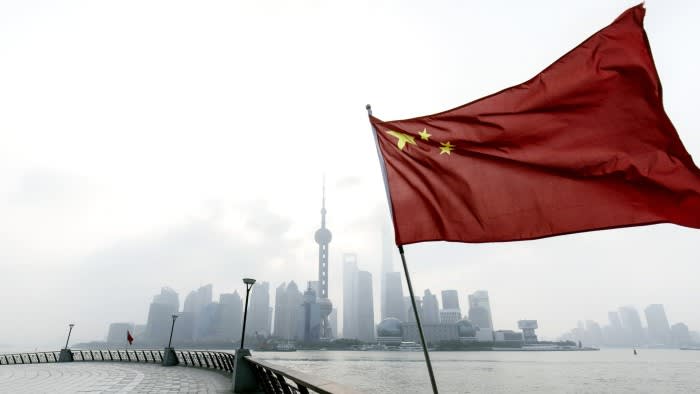Unlock the Editor’s Digest for free
Roula Khalaf, Editor of the FT, selects her favourite stories in this weekly newsletter.
Fund manager Abrdn is cutting out investment exposure to China in one of its emerging market funds to focus on the region more broadly, in an attempt to give investors a greater choice of products as the Chinese market has lagged behind international rivals.
Abrdn will relaunch its Emerging Markets Sustainable Equity fund to exclude China and will rebrand the product the Emerging Markets Ex China fund.
Nick Robinson, deputy head of global emerging markets equities at Abrdn said although China is “home to some fantastic companies”, some investors “want more flexibility in their approach to China”. He added this was “not a call on the Chinese market”. Investors can still gain exposure to China through its other emerging markets funds.
According to Abrdn’s latest figures, the fund has underperformed its benchmark MSCI Emerging Markets index over the past year, three years and five years. It counted Chinese technology firms Alibaba and Tencent among its largest stock positions.
Abrdn said that the changes come “at a time of increasing opportunities” in the broader emerging markets, which, excluding China, are expected to account for almost 50 per cent of global growth by 2050, according to the fund manager’s research.
Although the Abrdn fund manages only $123mn, it is symbolic of the growing range of products focused on the broader emerging markets.
According to figures from data site Morningstar Direct, the number of actively run EM ex-China strategies has grown from six in 2017 to 51 in 2024.
51Total actively run EM ex-China strategies this year, up from six in 2017
Some 45 asset managers run global emerging markets strategies without exposure to China, while more than 90 other firms are considering or willing to launch such products, a research paper by consultancy Bfinance noted.
Earlier this year, Stewart Investors launched a Global Emerging Markets (ex China) Leaders Sustainability fund, which it said reflected “investor appetite for global emerging market specialist funds without allocations to China, as well as pockets of concern over perceived investment risk and volatility in China”.
Robinson at Abrdn said that broadening the fund beyond China means investors will have exposure to more technology and finance companies than the standard emerging markets index.
Ben Yearsley, investment director at Fairview Investing, said: “It feels as if investors have given up on China — fund groups respond by creating products to fill the void.”
However, he added he was not yet seeing huge demand for such products and that China now offers good value. “I’m still positive [on China],” he added. “It’s so cheap and the opportunity is vast.”
Investment manager M&G launched a China fund earlier this month “to tap into long-term strategic opportunity”.
The company said at the time that the launch “coincides with Chinese equity valuations reaching all-time lows while companies increasingly focus on boosting shareholder returns”.
“We are not particularly seeing a huge demand for EM ex-China funds, although we are seeing more interest in country-specific areas, especially India,” said Rob Burgeman, investment manager at wealth manager RBC Brewin Dolphin.
“This is in large part because of the poor performance of China over the past five years — a total return of just 3.6 per cent.”
He added there were other challenges for China, noting that “some of these are environmental and China is not especially popular with ESG Investors for that reason. Nevertheless, some of the largest solar panel manufacturers are Chinese companies, so it would be wrong to write China off as an ESG wasteland.”
https://www.ft.com/content/4e56e47f-d66d-47ef-be32-74a87c2a4c95


